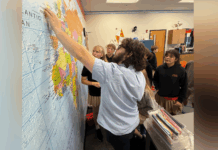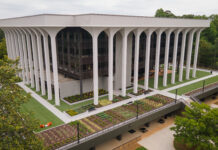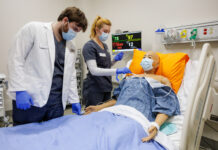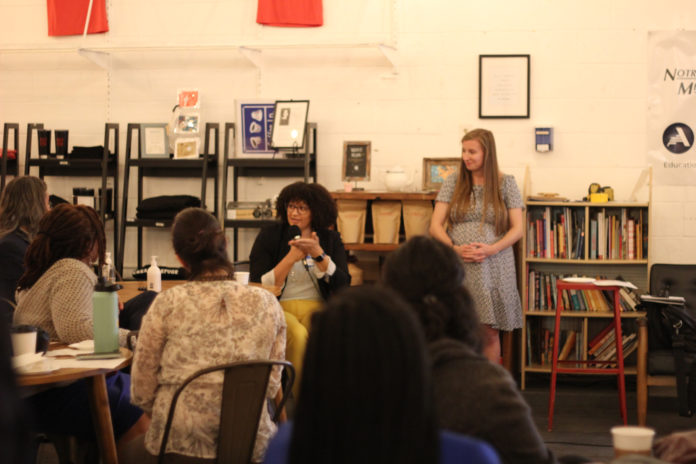
A Mercer University study examining the efforts of four groups that work with immigrant and refugee youth sheds light on the factors that contribute to the programs’ success.
The yearlong study, sponsored by AmeriCorps, examined Notre Dame Mission Volunteers AmeriCorps (NDMVA) programs in Metro Atlanta during the 2020-21 academic year.
Tift College of Education researchers conducted the process evaluation, which documents a program’s implementation to show how its outcomes are achieved, with NDMVA’s Agape Youth and Family Center, Catholic Charities, Global Village Project, and International Rescue Committee.
Each of the programs works with refugee and immigrant students and their families to support academic and nonacademic needs as well as create a sense of belonging.
Dr. Rob Helfenbein, professor of curriculum studies and associate dean for research and faculty affairs, and doctoral student Erica Warren, found the programs’ effectiveness was rooted in a holistic approach that included research-based culturally relevant and responsive pedagogy and curriculum, a deep community connection, and an ethos of caring.
“The programs that were successful with immigrant and refugee students really leaned into affirming their cultural identities,” said Warren, who is pursuing a Ph.D. in curriculum and instruction. “There’s a concept called transnationalism. It’s this idea that increasingly youth who immigrate and come to the United States as refugees develop identities that are American and of their home culture.
“Programs that are successful really engage in allowing this transnational identity development rather than an assimilationist identity where they’re going to shirk off their home culture and take the United States culture as their identity.”
Successful programs focused on seeing culture as an asset rather than a deficit. One example of this is a volunteer asking a student how to say a word in their home language, Dr. Helfenbein said.
“In everything that they did, they were culturally affirming with these young people,” he said.
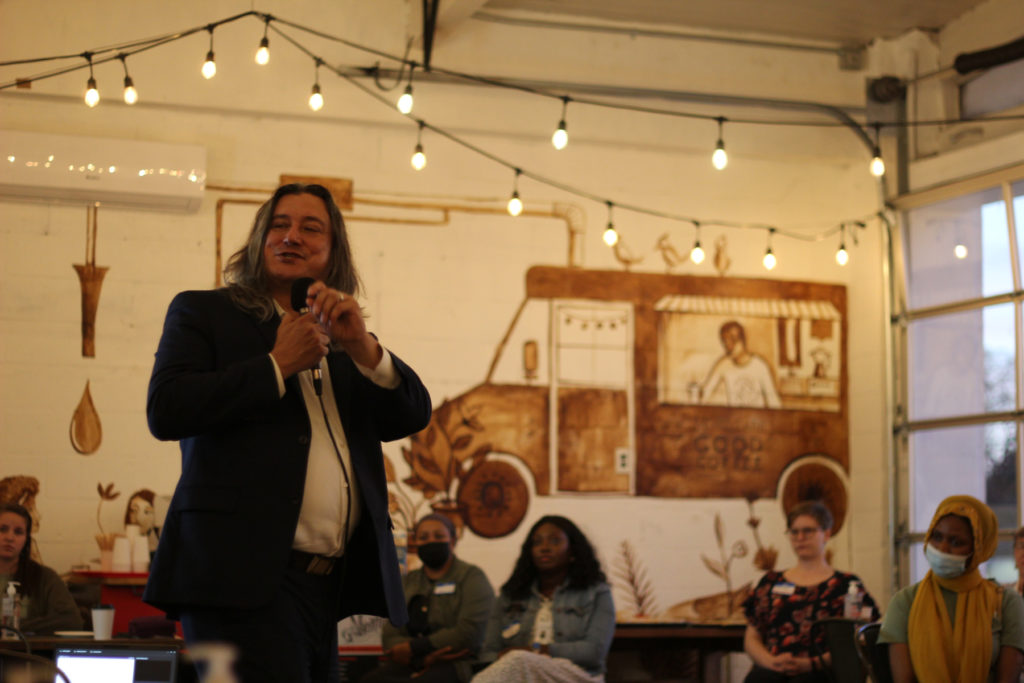
In addition, the NDMVA organizations’ deep community connections helped them connect students and families with other sources of aid. This is especially important in Metro Atlanta, where immigrants and refugees are spread across the suburbs.
“What we found was that even though there wasn’t a central hub of services, these organizations had done a tremendous job of connecting with not only each other but connecting with other organizations who were all doing this work,” Warren said. “And so, they created a wider web that made it possible for them to still meet the needs of the immigrant and refugee population.”
The NDMVA programs developed these connections with community, faith and school leaders prior to 2020, which allowed them to fall back on those trusted relationships when the COVID-19 pandemic emerged.
“So, when they did have to turn everything on its head, they had an advantage,” Dr. Helfenbein said.
Finally, the researchers found what they described as an “ethos of caring” among staff and volunteers.
“What we saw was a genuine concern for the humanity of each student and their families,” Warren said. “There was an understanding that in order to help students be successful, they had to make sure that some of these stressors they were dealing with because they immigrated or because they were a refugee were taken care of as well.”
In some cases, this meant providing food, transportation and other resources, with which their community partnerships also helped. When these needs were met, students were better able to engage with learning, she said.
The programs “take seriously socio-emotional learning. They have to attend to how the kids are feeling, even a wellness kind of approach, checking in with the learners themselves,” Dr. Helfenbein said. “It’s not just, ‘We’ve got to get this math homework done.’”
As part of the study, the researchers conducted an extensive review of existing research, held five focus group virtual interviews, visited one site in person and observed a session with youth participants. The pandemic prevented additional in-person research.
Dr. Helfenbein and Warren presented their findings in March at an event at Refuge Coffee in Clarkston.
“This report gives us a huge amount of information about what’s working and how we can apply what’s working in Atlanta in other places,” said Shannon Fritz, chair of the NDMVA board of directors. “We’ll be using the results of how important it is to incorporate the social and emotional component and combine it with the academic support and the importance of the cultural aspect of the education.”
Not only did representatives from the four NDMVA programs attend the Clarkston event, but so did community leaders as well as those from similar organizations. Other groups are interested in working with the University on similar projects, Dr. Helfenbein said.
“Mercer was able to help us all get in this room and make sure we’re having this conversation,” said Adrienne Andrews, who was the NDMVA executive director at the time of the research and is now serving as an adviser. “The research not only validated our work, but it also brought people together to think about solutions to community problems.”

